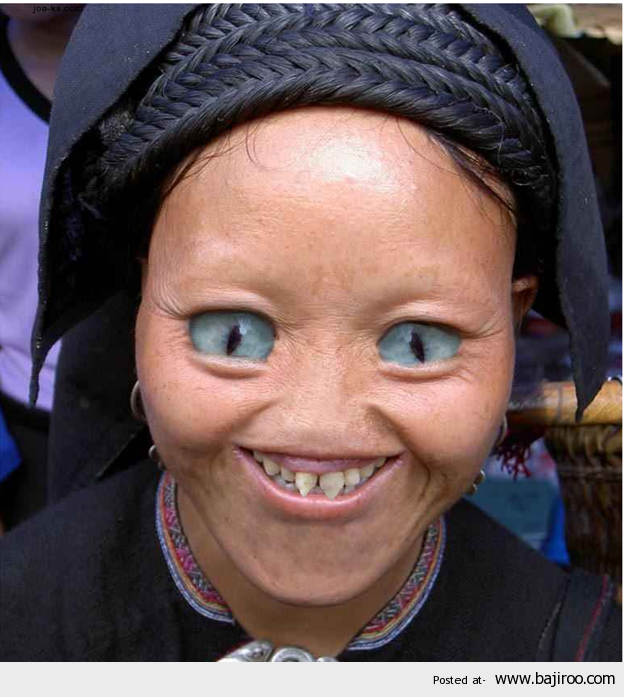In a world dominated by social media and visual representation, the term "ugly people pictures" evokes a myriad of emotions and discussions. This phrase often conjures up negative connotations, reflecting society's superficial standards of beauty. However, examining this topic reveals deeper insights into societal perceptions, self-acceptance, and the role of media in shaping our views on attractiveness.
The purpose of this article is to explore the implications of "ugly people pictures" and how they relate to broader themes of beauty and societal norms. We will delve into the psychological effects, cultural perspectives, and the evolution of beauty standards throughout history. Understanding these aspects can help foster a more inclusive and compassionate society.
Throughout this article, we will utilize research, statistics, and expert opinions to provide a comprehensive overview of the subject. By the end, readers will have a well-rounded understanding of the concept and its implications on personal identity and societal values.
Table of Contents
- Definition of Ugly People Pictures
- Cultural Perceptions of Beauty
- Psychological Effects of Being Labeled Ugly
- Media Influence on Beauty Standards
- Historical Context of Beauty Standards
- The Role of Self-Acceptance
- Case Studies and Personal Stories
- Conclusion
Definition of Ugly People Pictures
The term "ugly people pictures" typically refers to images that depict individuals who do not conform to conventional standards of beauty. This concept can vary significantly across cultures and time periods, and it often reflects societal biases and prejudices.
It's essential to understand that beauty is subjective, and what one person may deem unattractive, another might find charming or unique. The pictures categorized as "ugly" are often those that highlight physical features that are not traditionally celebrated—like asymmetry, blemishes, or unconventional styles.
Cultural Perceptions of Beauty
Cultural perceptions of beauty play a significant role in shaping the idea of "ugly people pictures." Different cultures have distinct standards that determine what is considered attractive. For instance:
- In some cultures, body size and shape can affect beauty standards—larger bodies may be celebrated in certain African cultures, while slimness may be idealized in Western societies.
- Facial features such as skin tone, eye shape, and hair texture can influence perceptions of beauty differently across cultures.
As globalization continues to influence cultural exchanges, these beauty standards are evolving, leading to a more diverse understanding of attractiveness.
Psychological Effects of Being Labeled Ugly
Being labeled as "ugly" can have profound psychological effects on individuals. Studies have shown that people who perceive themselves as unattractive may experience:
- Low self-esteem and self-worth.
- Increased anxiety and depression.
- Social withdrawal and isolation.
These psychological impacts can lead to negative coping mechanisms, such as avoidance of social situations or unhealthy behaviors to conform to societal standards of beauty.
Media Influence on Beauty Standards
The media plays a pivotal role in shaping and reinforcing beauty standards. From magazine covers to social media platforms, the portrayal of beauty can influence public perception significantly. Key points to consider include:
- The prevalence of digitally altered images that create unrealistic beauty ideals.
- The rise of influencers and their impact on beauty trends.
- The growing movement towards body positivity and the challenge of traditional beauty norms.
Understanding the media's influence is crucial for recognizing how "ugly people pictures" fit into the broader narrative of beauty and self-acceptance.
Historical Context of Beauty Standards
Beauty standards have evolved dramatically throughout history. In ancient times, different societies had unique ideals of beauty, often reflecting their culture and values. Notable shifts include:
- In the Renaissance era, fuller figures were seen as a sign of wealth and fertility.
- The 1920s introduced the flapper era, where a more boyish figure became fashionable.
- Modern times have seen a focus on fitness and slimness, influenced by media and celebrity culture.
These historical changes illustrate how fluid and subjective beauty can be, challenging the notion of "ugliness" as a permanent label.
The Role of Self-Acceptance
Self-acceptance is a vital component in addressing the stigma surrounding "ugly people pictures." Embracing one's unique features can lead to:
- Improved mental health and self-esteem.
- A greater appreciation for diversity in beauty.
- Stronger connections with others who share similar experiences.
Encouraging self-acceptance can help dismantle harmful stereotypes and promote a more inclusive view of beauty.
Case Studies and Personal Stories
Examining personal stories and case studies can provide valuable insights into the experiences of those labeled as "ugly." For example:
- People who have faced bullying or discrimination due to their appearance often share stories of resilience and self-discovery.
- Individuals who have embraced their unique features often become advocates for body positivity and self-acceptance.
These narratives highlight the importance of compassion and understanding in fostering a more inclusive society.
Conclusion
In conclusion, the concept of "ugly people pictures" opens up a critical dialogue about beauty standards, societal perceptions, and self-acceptance. By exploring cultural contexts, psychological impacts, and the influence of media, we can better understand the complexities surrounding beauty.
It is essential to challenge the stigma associated with being labeled "ugly" and promote a culture of acceptance and diversity. We encourage readers to reflect on their perceptions of beauty and consider the impact of their words and actions on others.
We invite you to share your thoughts in the comments, engage with this article, and explore more on topics related to beauty and self-acceptance.
Thank you for reading, and we hope to see you back for more insightful discussions!



